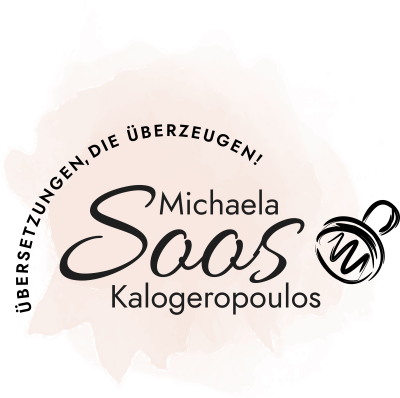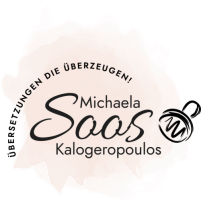
FAQS

I get it. Official paperwork and legal translations can be confusing.
All kinds of jargon are used by the organisations that you need the translations for, and often by the translators themselves.
The terminology can be confusing even if you’re a native speaker of German, never mind if it’s your second language.
If you’re new to the translation industry, you probably won’t know the difference between sworn translations, certified translations, state-appointed translators, and a whole range of other terms. You’re probably also a bit unsure of exactly what you need.
These FAQs are designed to lay out exactly what all the key terms mean succinctly and clearly, so you know exactly what you’re looking for.
Having read through them, if you have any more questions don’t hesitate to get in touch.
01.What do you mean by legal translations?
Legal translation is the translation of any official documents that are required for legal purposes, including certificates and contracts. It’s a very specialised area of translation, as it requires specialist knowledge of the relevant legal vocabulary and systems.
02.What are certified translations?
A certified translation, sometimes called a sworn or official translation, is a document that carries stamp and signature of an official sworn translator.
Sworn translators are authorised by the relevant authorities to translate official documents. The majority of official bodies will reject any translations that don’t meet these criteria.
03.What are sworn translations?
A sworn translation, sometimes called a certified or official translation, is a document that carries stamp and signature of an official sworn translator.
Sworn translators are authorised by the relevant authorities to translate official documents. The majority of official bodies will reject any translations that don’t meet these criteria.
04.How do you become a sworn translator?
Translators can either be sworn in at a local court or publicly appointed. They have to prove that they hold the relevant qualifications before this can happen.
Sworn translators are required to take an oath when they’re sworn in and have a duty to protect confidentiality. They undertake to faithfully translate written texts into German.
05.What’s an apostille?
An apostille is an official certificate issued by a government that’s added to documents to confirm their authenticity.
That allows them to be used for official purposes in other countries that also recognise apostilles, without any need for further proof of authenticity.
06.Is a certificate translated from a sworn translator in Baden-Württemberg valid in the whole of Germany?
Yes, absolutely. It doesn´t matter if you live in Berlin or Sachsen or elsewhere, my translations are valid throughout Germany. So, you can order a translation from me even if you’re not living in Baden-Württemberg or Stuttgart.
07.I already have my documents translated from another translator/by myself. Can you just certify them?
No. As a sworn translator I bear the legal responsibility for the correctness of the translation I sign with all the obligations and consequences. I cannot guarantee and bear that risk for a translation done by someone else.
08.Are you allowed to certify other documents as well as translations?
Absolutely not. Legal translators are only allowed to certify translations and nothing else. For other certifying services you have to turn to the “Bürgerbüro”.
09.Which languages do you offer?
I offer translations from English and Spanish into German. Note: No professional translator translates both ways, meaning into his/her mother tongue and vice versa. Professional translators ONLY translate into their mother tongue to ensure the best possible quality.
10.How long will it take until I receive my translation?
This depends on the number of pages. A one-page standard certificate or driver´s license in card format is normally ready within 1-2 days.
I’ll then send you the certificate in the post. Sworn translations are only valid if they’re original, so you´ll need the hard copy, as it has my stamp and signature on it. This takes normally 1-2 days within Germany.
11.How can I pay?
I accept bank transfers, Paypal and Wise. Please note that you have to pay for your translation in advance.
This is standard procedure in this industry, and is how translation agencies operate when working with private customers. After I’ve received your payment, I’ll start translating immediately.
12.Do you need the original document?
The simplest way is to send me a PDF-Scan or a jpg. file of your document. Please try and get a good quality scan of the whole document. That should include the back of the documents if there are stamps or signatures.
A legal translator has to see every stamp or feature of the document, even if you don't consider it necessary.
At the end of the translation the translator has to note down if he/she translated from an original, a copy, a scan etc. Only in special cases is the original document necessary.
If you’re unsure, please ask the organisation in question what they accept before sending the document to be translated.
13.What postal service do you use and what does it cost?
I send certified translations via registered post at a cost of € 3,95. This means that you’ll get a tracking number and can follow the status of your translation.
14.The issuing authority made a mistake on my certificate (wrong name spelling, etc.). Can you just correct that in the translation?
No. Sworn translators are obliged to only write what’s in the source text. They’re not allowed to change anything or leave anything out.
I am able to make a note at the end of the translation concerning the passage in question, but cannot and am not allowed to miss out anything on an official certificate.
If the authority did make a mistake when issuing your document, you’ll have to go back to them and apply for a new certificate.

